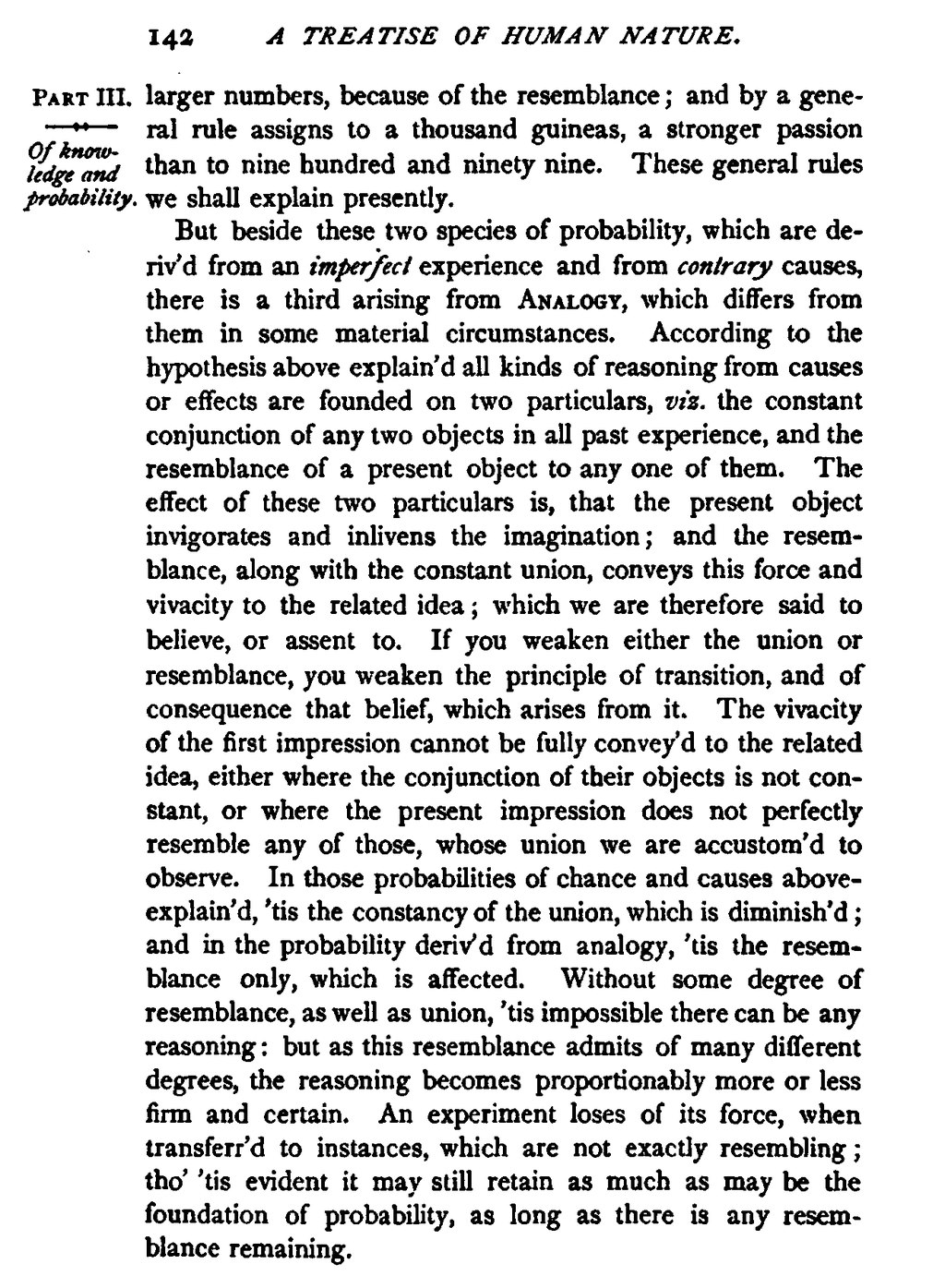larger numbers, because of the resemblance; and by a general rule assigns to a thousand guineas, a stronger passion than to nine hundred and ninety nine. These general rules we shall explain presently.
But beside these two species of probability, which are deriv'd from an imperfect experience and from contrary causes, there is a third arising from Analogy, which differs from them in some material circumstances. According to the hypothesis above explain'd all kinds of reasoning from causes or effects are founded on two particulars, viz. the constant conjunction of any two objects in all past experience, and the resemblance of a present object to any one of them. The effect of these two particulars is, that the present object invigorates and inlivens the imagination; and the resemblance, along with the constant union, conveys this force and vivacity to the related idea; which we are therefore said to believe, or assent to. If you weaken either the union or resemblance, you weaken the principle of transition, and of consequence that belief, which arises from it. The vivacity of the first impression cannot be fully convey'd to the related idea, either where the conjunction of their objects is not constant, or where the present impression does not perfectly resemble any of those, whose union we are accustom'd to observe. In those probabilities of chance and causes above explain'd, 'tis the constancy of the union, which is diminish'd; and in the probability deriv'd from analogy, 'tis the resemblance only, which is affected. Without some degree of resemblance, as well as union, 'tis impossible there can be any reasoning: but as this resemblance admits of many different degrees, the reasoning becomes proportionally more or less firm and certain. An experiment loses of its force, when transfer'd to instances, which are not exactly resembling; tho' 'tis evident it may still retain as much as may be the foundation of probability, as long as there is any resemblance remaining.
